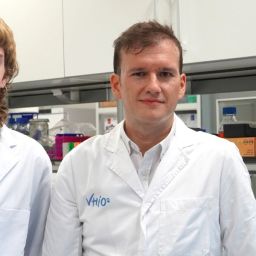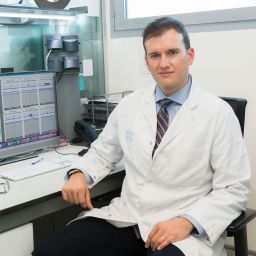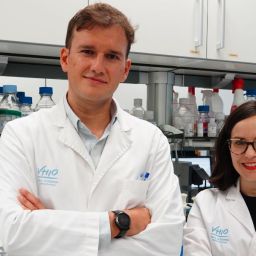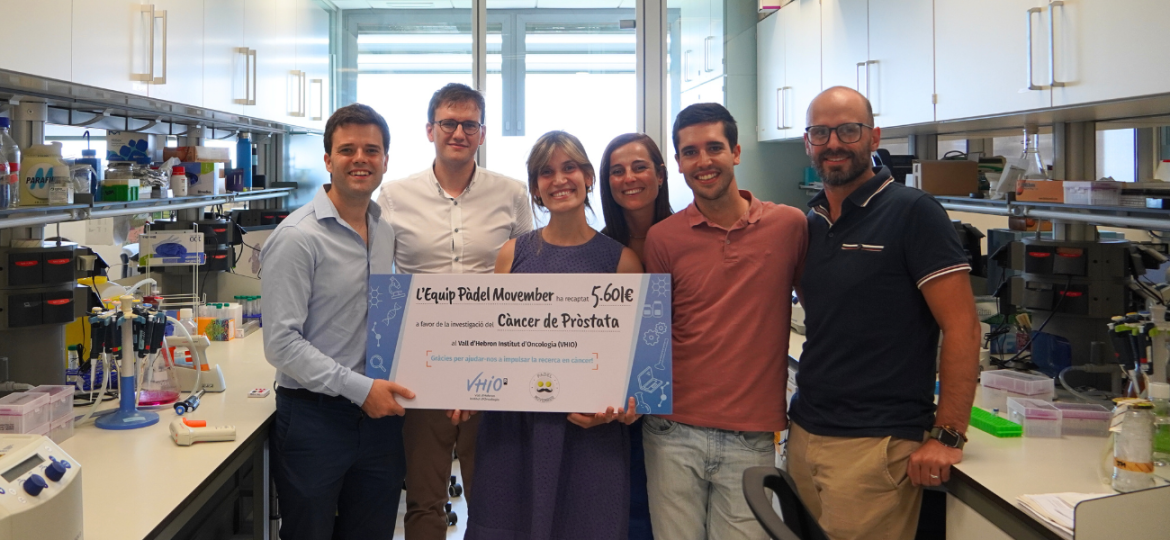
On 10 June, the organizers of the Padel Movember tournament visited the VHIO facilities to present the cheque for €5.601 to VHIO’s Prostate Cancer Group. A solidarity initiative which has been consolidated for the second consecutive year, and that means significant support for the group.
The Prostate Cancer Group, co-led by Dr. Joaquin Mateo and Dr. Joan Carles, aims to integrate knowledge from clinical research, molecular biology, genomics, transcriptomics, computational sciences and clinical data to develop new therapeutic strategies for prostate cancer patients.
Last winter, Dr. Joaquin Mateo organized an internal competition to choose from, among more than twelve research projects, which one would receive Movember Padel 2024 proceeds. A scientific committee external to the Prostate Cancer Group evaluated and scored all the projects.
“The mission is to be able to identify a project that can serve as a proof of concept and that can be initiated thanks to this donation. So that, if the results are promising, it will open a new line of work for a larger research project in the future“, explained Dr. Mateo.
After the voting, 5 finalist proposals were selected, of which the project ‘Investigating the role of cellular metabolism in PARPi sensitivity in prostate cancer’, led by Nicolás Anselmino, senior postdoctoral researcher in VHIO’s Prostate Cancer Group, was the winner.
RESEARCHING THE ROLE OF CELL METABOLISM IN PROSTATE CANCER
Prostate cancer is one of the main malignant neoplasms in terms of incidence and mortality. According to the Spanish Society of Medical Oncology (SEOM) and the Spanish Network of Cancer Registries (REDECAN), it is estimated that 32,188 new cases of prostate cancer will be diagnosed in Spain in 2025, making it the most common tumour in men.
This project aims to understand why some tumours become resistant to treatment, i.e. no longer respond to treatment, and to comprehensively analyse the various factors that might influence therapeutic response. This approach could improve patient treatment and contribute to the development of more effective therapeutic strategies.
The purpose of this study is to identify the mechanisms through which prostate tumors acquire resistance to PARP inhibitors.
PARP inhibitors are a type of therapy aimed at preventing the action of an enzyme – PARP – that repairs DNA. Preventing this action in tumour cells causes the death of these cells rather than healthy cells, hence the effect of these PARP inhibitors as a targeted therapy.
It has been observed that although patients with BRCA2 deficiency (a gene that helps repair damaged DNA) initially respond well to PARP inhibitors, about half of them develop resistance over time. That is, the treatment stops working and the cancer returns.
Over the past few years, VHIO’s Prostate Cancer Group has led several clinical and laboratory studies that have helped to better understand which patients will respond best to these treatments. The challenge now is to understand why, in some cases, the cancer manages to adapt and resist even these types of therapies.
Nicolás Anselmino, explains: ‘Our aim is to evaluate possible changes in metabolism associated with resistance to PARP inhibitors (PARPi)’ and adds ‘understanding these changes can help us to understand PARPi resistance mechanisms, and guide the development of new therapeutic strategies’, he explains.
To investigate and study these resistance mechanisms in more depth, the VHIO Prostate Cancer Group has developed preclinical treatment-resistant models derived from prostate cancer patients.
‘Understanding why some tumours respond and others do not to the same drug, as well as understanding what changes so that a tumour that initially responds to a drug becomes resistant, is key to being able to design new treatments that help patients,’ says Dr. Mateo.
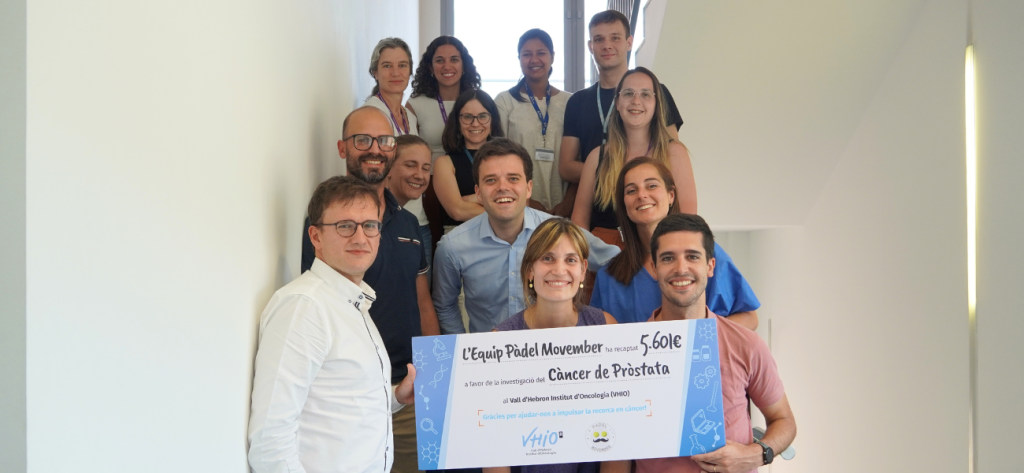 PADEL MOVEMBER
PADEL MOVEMBER
Padel Movember is a charity paddle tennis tournament organised by doctors, journalists and engineers who are fans of this sport. This tournament is held once a year in November to raise funds for prostate cancer research at the Vall d’Hebron Institute of Oncology (VHIO). The next tournament will be held on 22 November 2025, and we encourage you to participate!


